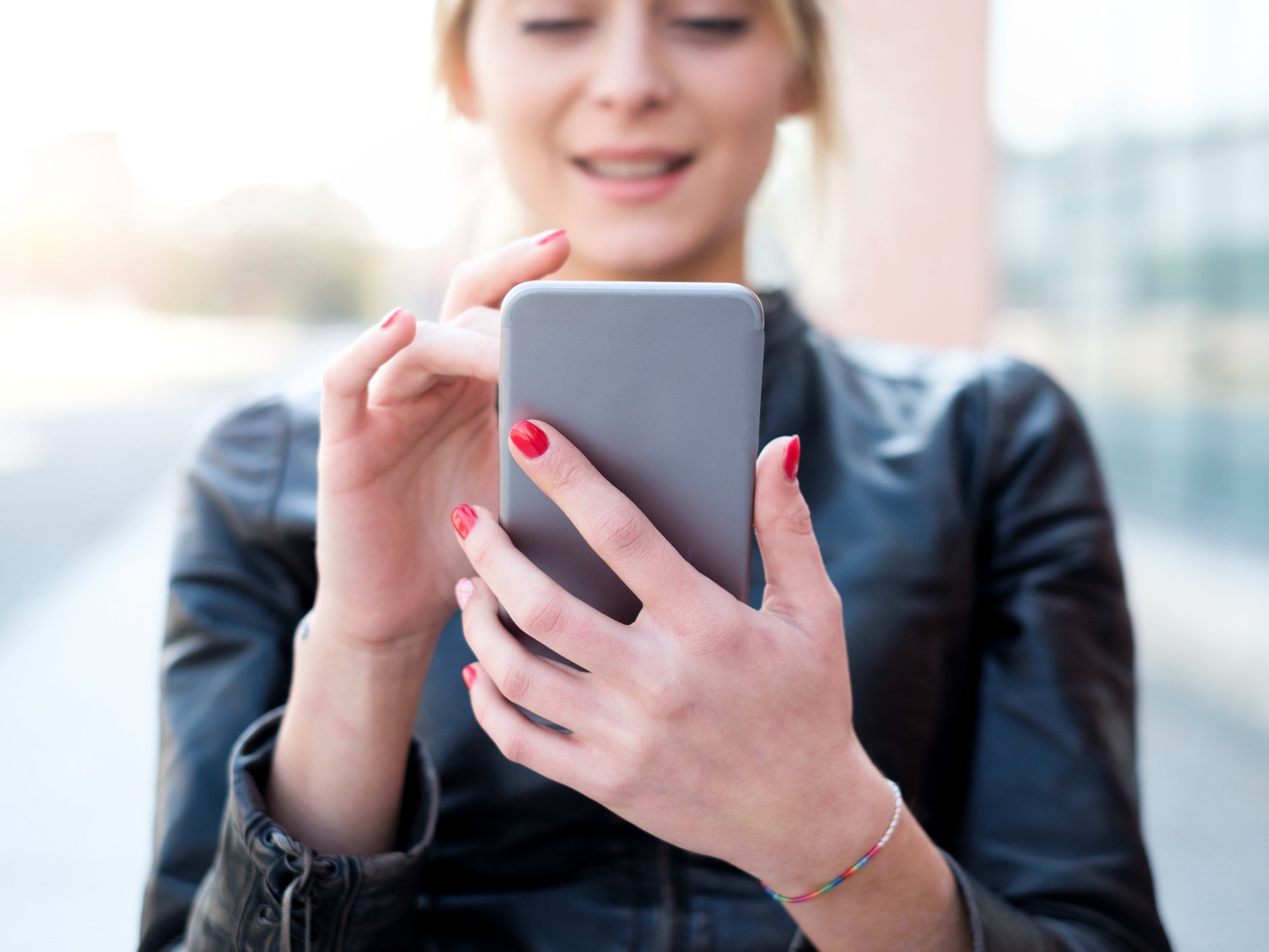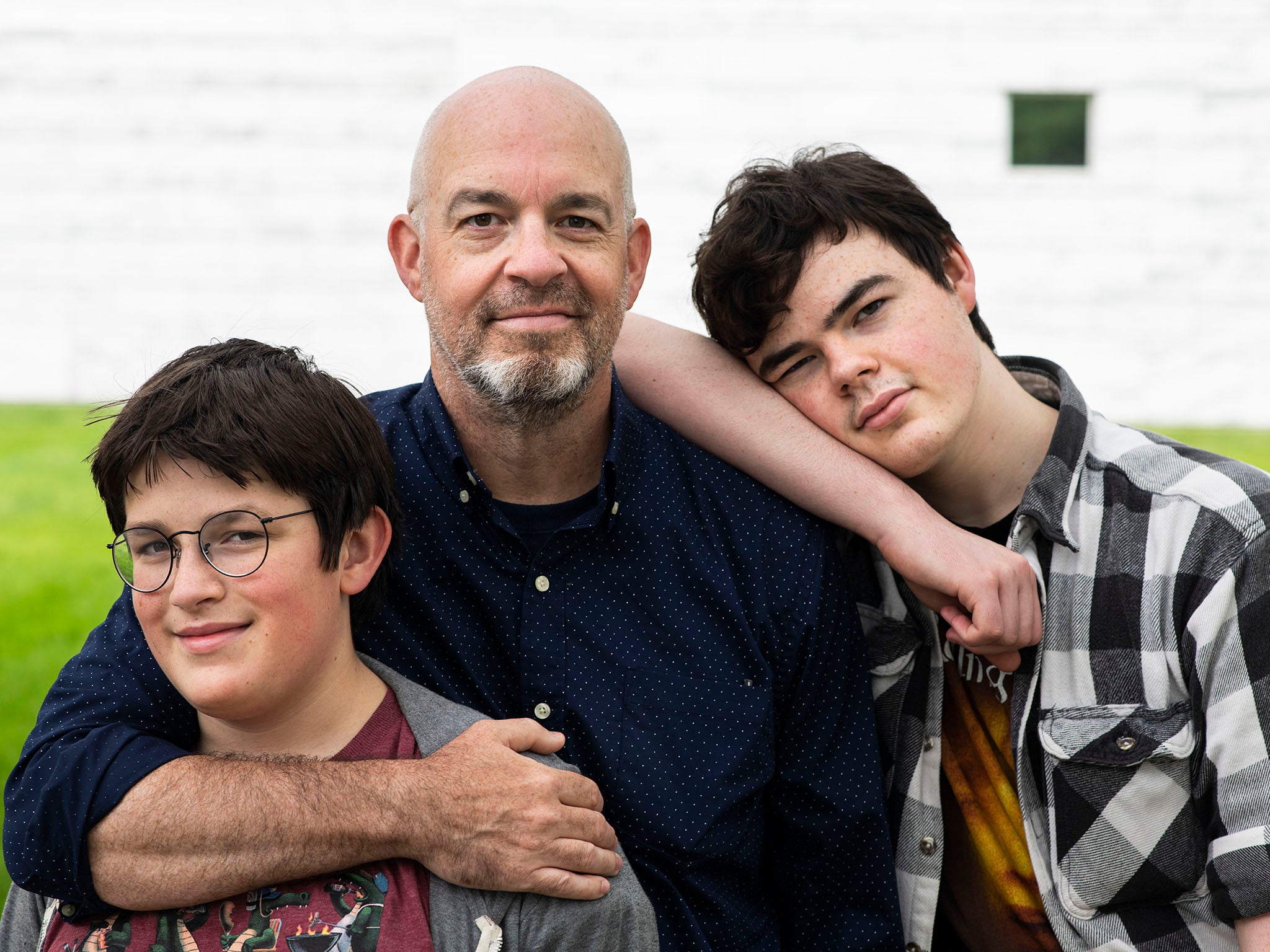Generation Z children are the stars of their parents’ facebook and instagram – and they have opinions about that
Children are often the stars of their parents’ social media accounts. Now Caitlin Gibson looks at why the technology generation are choosing their own digital footprint

Your support helps us to tell the story
From reproductive rights to climate change to Big Tech, The Independent is on the ground when the story is developing. Whether it's investigating the financials of Elon Musk's pro-Trump PAC or producing our latest documentary, 'The A Word', which shines a light on the American women fighting for reproductive rights, we know how important it is to parse out the facts from the messaging.
At such a critical moment in US history, we need reporters on the ground. Your donation allows us to keep sending journalists to speak to both sides of the story.
The Independent is trusted by Americans across the entire political spectrum. And unlike many other quality news outlets, we choose not to lock Americans out of our reporting and analysis with paywalls. We believe quality journalism should be available to everyone, paid for by those who can afford it.
Your support makes all the difference.Alison Santighian flicks her finger over her smartphone screen, and her Facebook profile scrolls past in a blur. She is looking for a particular photo from a few days ago, a picture her nine-year-old son, Arsen, didn’t want her to take.
“Found it!” she says. Arsen, sitting beside her on the family’s patio at their Bethesda, Maryland, home, peers over her shoulder. “He looked very handsome that day,” Alison explains, and Arsen rolls his eyes. He was dressed in a dapper white suit for a piano performance, and when Alison asked him to pose for a picture that she could share with her Facebook followers, Arsen said he’d rather not.
In the end, they landed on a compromise, and Arsen did strike a pose: he slumped in his seat with a piano music book tented over his face, his expression hidden.
There have been more negotiations like this lately, as the Santighian kids – Arsen Santighian and his 11-year-old sister, Elsa Santighian – have begun asking questions and expressing opinions when their parents decide to share a photo or personal anecdote on social media. Such conversations have become a nearly ubiquitous rite of passage among families where children of a certain generation – the true digital natives, many of whom may have debuted on Facebook before exiting the womb – are now old enough to have their own ideas about what they want their online presence to look like, and who has the right to define it.
At first, the choice belongs to parents alone. An infant can’t object to a soft-filtered selfie with mama; a toddler won’t know if their tantrum becomes a topic of online commiseration. But when, exactly, does it start to change? Is there a turning point somewhere between first steps and first school dance, a clear moment when one’s offspring becomes an independent being whose experiences belong to them, too, and not just to a proud (or confounded, or frustrated) parent who just wants to boast (or inquire, or vent)?

The stakes of this particular familial conflict are poised to increase as more members of Gen Z – a generational cohort that the Pew Research Center defines as those age 22 and younger – come of age. Children might first be concerned about what their friends think of a parent’s posts or pictures – but later, new concerns are added to the mix: if you made a joke that your dad shared on Twitter, will a college-admissions officer think it’s funny? If a potential employer googles your name, would they find pictures of you and your sister in bathing suits at the beach?
Alison and her husband, Pete, think the line of authority begins to blur a bit as kids become teens and inch closer to legal adulthood. For now, when Elsa and Arsen object to a photo or a social media post, they are encouraged to explain why, and Pete and Alison take those points seriously.
But ultimately – in this household, at least – the parents make the final decisions, and they don’t have to ask permission.
“We do post things that they don’t know about,” Alison says. “Cute pictures of them sleeping, for example.”
“Oh, I know about that,” Elsa corrects her. “It’s kind of creepy, if you think about it.” She smiles and shrugs. “But I’m fine with it.”
“Why is it creepy, Elsa?” Pete asks.
“Because you’re in your sleep,” Elsa says.
“We look at you all the time when you’re asleep!” Alison says.
“That’s looking,” Arsen interjects, “not posting.”
Alison and Pete consider this for a moment. Alison laughs and starts nodding.
“You know,” Pete says, “that’s a good argument.”
When Stacey Steinberg began the research that would make her a leading expert on “sharenting”, she felt sure that, as a lawyer who had prosecuted child abuse cases, she’d wind up concluding that parents really shouldn’t post anything about their children online.
“But what I really found in my research, and in my own life – because I’m a mum who shared on social media – is that there are so many benefits that come from sharing our stories,” she says. “If we were to silence our voices as parents, I think our families would miss out on opportunities to connect, and society would miss out as well.”
Parents offer a myriad of reasons for wanting to share their experiences on social media: there’s a sense of community there, a source of solidarity and support amid the triumphs and pitfalls of parenting. It’s a way to keep far-flung relatives in the loop. It’s a journal, a photo album, a memory box where the magical and mundane moments of fleeting childhood can be revisited again and again with the tap of a finger.
But, to whom do those memories belong?
“When kids are really little, their story is so connected and embedded with a parent’s story,” Steinberg says. “Then it gets more complicated as they get older, as they have their own digital identity, and they have more of an interest in controlling what that identity looks like.”
Viji Sathy, a photographer and educator in Chapel Hill, North Carolina, sensed this shift in the past year, as her 10 and 12-year-old boys began responding to her camera with a certain wariness.
“They started asking, ‘Are you going to post that?’” she says, “and once I got that from them a couple of times, I started asking them, ‘is it ok if I share this?’”
Usually, it is. But sometimes – like when the boys have impromptu jam sessions together on saxophone and piano – they ask her to refrain from recording them. (A video feels more personal and invasive than a photo, they say.)
Sathy has been sharing her family’s story through images and video since her boys were infants, “so it’s hard for me to surrender that control, because this is something for me, too”, she says. “But we talk about the importance of consent in general, and this is another example of how we respect consent and model it for our kids.”
That was the precise word used by Gwyneth Paltrow’s teen daughter, Apple Martin, who sparked a fervent debate about online privacy when she issued a pointed, public callout to her mum after Paltrow shared a photo of the pair on a ski trip in March.

“Mum we have discussed this,” Martin wrote in a comment on Paltrow’s Instagram post. “You may not post anything without my consent.” ("You can’t even see your face!” Paltrow posted in response.)
A torrent of judgment swiftly followed, with thousands of commenters weighing in: Martin was being unreasonable. Paltrow was being irresponsible. Martin had a right to her privacy. Paltrow had a right to her parental pride.
Most kids don’t have Hollywood A-lister parents with 6 million Instagram followers. But many of Martin’s Gen-Z peers share a desire to curate their own online image, says Jason Dorsey, president of the Center for Generational Kinetics, a global Gen Z and millennial research and consulting firm. The company conducted a survey of thousands of members of Gen Z across the United States, Europe and Australia last year, and found that they are especially savvy about digital privacy on social media.
“These are kids who have always been on social media through their parents, and for a long time, some kids might think that’s cool: ‘how many likes did we get?’ It’s almost like a game,” Dorsey says. “But what happens is those same kids then become tweens and teens and have not only more awareness about the positives and negatives of social media, but they have all the normal questioning of identity and body image, and now they’re very aware of the message that they’re sending to the world.”
And kids – even young kids – want more control over that message.
“I think that everything that’s a picture of me, I have the right to veto,” says Sathy’s 10 year-old son, who asked not to be named to protect his privacy. “I mean, it’s me, isn’t it? I should get to control what is shared about me.”
In general, Steinberg says she thinks parents should defer to their kids. But there will always be exceptions, she adds. Say, for instance, that a child doesn’t like how he looks in a group photo at a family wedding; that picture might be shared anyway.
“What I’ve learned over time is that this isn’t a black and white issue, this is a complicated one,” she says. “They might be the first generation of kids who are growing up with a digital footprint, but we’re also the first generation of parents trying to navigate these new seas in our parenting repertoire. Every family needs to talk about it, but I don’t think every family needs to come up with the same answer.”
For Paltrow, the answer was to leave the disputed Instagram post in place – but to make sure that her daughter’s 15th birthday photo was “Apple-approved.” (Paltrow included an image of a text exchange to prove she’d obtained Martin’s consent.)
Stacey Ferguson, co-founder of the popular Blogalicious online community and conference and a mum of three in Maryland, says she also favours kid-approved photos when she posts to her public Instagram account, where she has nearly 5,000 followers.
But she made a rare choice to overrule her oldest daughter’s wishes during a recent spring break trip, when Ferguson posted a picture of her 14-year-old “and she had a meltdown,” Ferguson says. “She said, ‘You have to take it down, it’s awful!’”
Ferguson didn’t take the photo down. “I don’t want to embarrass her, but she truly looked fine, and I wanted her to know: even though, in your teenage mind, you think you look bad, you look great,” she says. “I didn’t want to reinforce that self-consciousness, that concern about ‘what are people going to think, how do I look?’ And she got over it quickly – she said, ‘fine, Mum,’ and moved on.”
For Doug French, a single father of two in Ann Arbor, Michigan, who began blogging about fatherhood in 2003 and co-founded the Dad 2.0 Summit, an annual conference about dads, marketing and media, the answer has been to let his 14 and 17-year-old sons have the final say over what he shares.

“I like to post quotes of Robert’s on Facebook, because I want to chronicle them; he’s funny,” French says of his older son. “But anytime he says something that I want to quote, I run it past him first. And there have been a couple he didn’t want me to post.”
And that should be enough, Robert says.
“In this age, you have to watch your image, and that extends to what your parents post about you, and it’s not fair for your parents to be defining your image for you,” Robert says. “So when a kid objects, a parent should listen, and yield.”
© Washington Post
Join our commenting forum
Join thought-provoking conversations, follow other Independent readers and see their replies
Comments